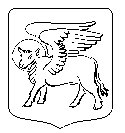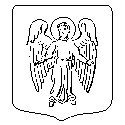
Saint Dominic
contemplating the Scriptures
Comments have been prepared by Chris Haslam using reputable commentaries, and checked for accuracy by the Venerable Alan T Perry. While not intended to be exhaustive, they are an aid to reading the Scriptures with greater understanding.
Comments are best read with the lessons.
Feedback to is always welcome.
Lessons for this week from the Vanderbilt University web site
PDF files for use with Acrobat Reader:
Get Adobe Acrobat Reader
Adobe Acrobat Reader
Isaiah
This book can be divided into two (and possibly three) parts. Chapters 1 to 39 were written before the exile, from about 740 BC to about 700 BC. These were difficult times for the southern kingdom, Judah: a disastrous war was fought with Syria; the Assyrians conquered Israel, the northern kingdom, in 723 BC, and threatened Judah. Isaiah saw the cause of these events as social injustice, which he condemned, and against which he fought valiantly. Chapters 40 to 66 were written during and after the Exile in Babylon. They are filled with a message of trust and confident hope that God will soon end the Exile. Some scholars consider that Chapters 56 to 66 form a third part of the book, written after the return to the Promised Land. These chapters speak of hope and despair; they berate the people for their sin, for worshipping other gods. Like Second Isaiah, this part speaks of the hope that God will soon restore Jerusalem to its former glory and make a new home for all peoples.
Isaiah 35:1-10
In this oracle of restoration, the prophet promises:
The prophet has predicted the destruction of the nations, particularly of Edom, and the devastation of their lands. (Edom was thought to have aided the Babylonians in capturing Jerusalem.) The other lands will be laid waste, rendered unproductive and given over to wild beasts (in Chapter 34). Now, in contrast, exiled Israel will be restored. The “desert shall ... blossom” (v. 1), the fertility of “Lebanon” (v. 2), “Carmel and Sharon”, which has been taken from them ( 33:9) will be given to Israel as a sign of God’s favour and glory. (The Plain of Sharon, extending from the Mediterranean coast to the Carmel range of mountains, was then covered with dense oak forest, as was much of Lebanon.) The land which had once been given over to wild beasts (“jackals”, v. 7, “lion”, v. 9) will once again be cultivated, and barren land will bloom.
Not only the land will be restored, but human life will also be transformed, with the end of infirmity (“make firm ... feeble knees”, v. 3, “blind”, “deaf”, “lame”, “speechless” vv. 4-6), and with the restoration of justice (“vengeance” and “recompense” v. 4) and hope. “Waters” (v. 6) and “streams” will make the land fertile again. (The little evidence we have indicates that the exiles did not suffer in exile, so vv. 4-6 are not meant literally.) Finally, the exiles, those taken captive to Babylon, will return on a “Holy Way” (v. 8), a “highway” in safety (v. 9) to “Zion” (v. 10), the holy city, and once again will worship God in the Temple. All of these will be signs that God’s rule is restored and that his favour rests on his people.
Psalms
Psalms is a collection of collections. The psalms were written over many centuries, stretching from the days of Solomon's temple (about 950 BC) to after the Exile (about 350 BC.) Psalms are of five types: hymns of praise, laments, thanksgiving psalms, royal psalms, and wisdom psalms. Within the book, there are five "books"; there is a doxology ("Blessed be ... Amen and Amen") at the end of each book.
Psalm 146:5-10
This psalm echoes the theme of restoration from Isaiah, focussing especially on God’s justice. Along with Psalms 147-150, this is a Hallelujah Psalm, a series of hymns of praise which close out the Psalter. Each hymn includes a call to worship, a statement of the purpose for praising God, and a renewed summons to praise. These Psalms all begin and end with the word Hallelujah (in the NRSV, translated as “Praise the Lord”).
In contrast to human rulers, who ultimately disappoint (vv. 3-4), God’s reign is just. Those who trust in God, the creator (v. 6) and of everlasting fidelity to humans, are “happy” (v. 5) and have “hope”. (“Jacob” means Israel.) Vv. 7-9 tell of God’s justice in his care and action on behalf of defenceless members of society, including the oppressed, the hungry, prisoners, the blind, the weak or humiliated (“bowed down”), strangers, orphans and widows. When these are cared for, it is a sign of God’s just reign, and he is to be praised. Hallelujah!

Three gospels in the New Testament offer similar portraits of the life of Jesus; Luke is the third of them. Its author, traditionally Luke the physician who accompanied Paul on some of his missionary journeys, draws on three sources: Mark (via Matthew), a collection of sayings (known as Q for Quelle, German for source) and his own source. It is a gospel that emphasizes God's love for the poor, the disadvantaged, minorities, outcasts, sinners and lepers. Women play a more prominent part than in the other gospels. Luke never uses Semitic words; this is one argument for thinking that he wrote primarily for Gentiles.
Luke 1:46b-55
Mary is visiting Elizabeth and Zechariah. God’s messenger, Gabriel, has told her that she will bear Jesus, “the Son of God” (v. 35), successor to David and founder of an eternal kingdom. With God, “nothing will be impossible” (v. 37) – it was possible for Sarah to bear a child. Mary now thanks God in a poem known as the Magnificat, the first word of its Latin translation. Speaking today, she might begin: From the depth of my heart, I declare the Lord’s greatness and rejoice in God my Saviour. “Servant” (v. 48) can also be rendered slave or handmaid: in v. 38, she has acknowledged that she is a “servant of the Lord”, i.e. obedient to him in all things. She will be hailed by people of every age (“generations”, v. 48) in the new era of salvation launched by her son. Why? Because of the seemingly impossible “things” (v. 49) God has done for her. Then a reminder (v. 50): God is compassionate to all who hold him in awe throughout time. Vv. 51-53 universalize her experience, to reflect how God deals with all humanity. While the verbs are in the past tense in English, the Greek tense has the sense of:
The “proud” (v. 51), the arrogant, are alienated from God by their very “thoughts”; he reverses fortunes, raising up those in need (“lowly”, v. 52, “hungry”, v. 53) and rejecting the rich, those who think they don’t need God. Vv. 54-55 sum up the Magnificat: in his compassion, God has fulfilled and continues to fulfill his promises to the patriarchs.
James
Although James opens like a letter, it is an exhortation to ethical conduct. Christians find themselves in an alien world, full of immorality and evil; they are called to a faith that is not merely theoretical or abstract, but acted upon, in every aspect of their lives. In a situation where trials and tribulations abound, and where the poor suffer at the hands of the rich, the author exhorts them to joy, endurance, wisdom, confident prayer and faithful response to the liberating word of God, as they await the second coming of the Lord. The recipients appear to be a group of Jewish-Christian communities outside Palestine. Traditionally, the Church has seen the author of this book as James, the brother of our Lord; however, its excellent Greek style, late acceptance into the canon, and absence of concerns about ritual purity suggest another author. The author seems to have written in the name of James, thus giving the book authority.
James 5:7-10
Early Christians expected the return of Jesus, the second coming, almost immediately. This was connected with expectations about the Kingdom of God. The apparent delay of this event caused some difficulties and even some disputes among the faithful. James warns his readers not to be impatient (vv. 8-9), lest this impatience lead to grumbling and division within the church (v. 9), which will bring judgement. For with the second coming of Christ comes also the judgement of God. The second coming is a two-edged sword: its arrival is both of comfort and of warning to Christians!
Instead, James tells his readers that they are to be patient in suffering like the prophets (v. 10). They are to bide their time like the farmer who plants his crop in the knowledge that the rains will come in their own time (v. 7). (In Palestine, there are two rainy times of the year: October-November, “early” and April-May, “late”.) So it is with the Kingdom. It is on its way, it is “near”, (v. 8) but will come in its own time. Our impatience will not hasten its coming, but we can expect it with the confidence of faith.

This gospel is the first in the New Testament, but it was probably the second to be written. Scholars recognize that it borrows material from Mark, and from a sayings source containing sayings of Jesus and known as Q (for Quelle, German for source). The author shows an understanding of Jewish culture and religion not found in the other gospels. It was probably written about 80 to 90 AD, possibly for a largely Jewish audience.
Matthew 11:2-11
John the Baptist has been arrested and imprisoned. Discouraged and in doubt, he sends messengers to ask Jesus: “Are you the one ...?” (v. 3) But Jesus does not simply say yes. Instead, he points John (and the crowd) to the signs of the Kingdom (v. 5). Echoing Isaiah, he points out that the blind, the deaf, the lame and the lepers are being healed and good news is given to the poor. Anyone can claim to be a herald of the kingdom, but only in the presence of the Messiah will the true signs of the Kingdom be evident. These are not mere claims, but incontrovertible proof. Yet apparently there are some who take offense at Jesus (v. 6). Perhaps even John himself has been disappointed because his expectations of the Messiah do not seem to be fulfilled by Jesus, e.g. he does not “wear soft robes” (v. 8). Perhaps this has given rise to doubts. Jesus refers to the signs of the Kingdom in Isaiah. John is “more than a prophet” (v. 9) for he heralds the dawn of the final era of history and announces the coming of the Kingdom. Now Jesus validates John’s ministry as a true prophet (by quoting a prophecy from Malachi, v. 10), going on even to identify John as Elijah, returned (v. 14). (Jews understood the time of the prophets to have ended, but took Malachi’s words to mean that Elijah would come again.) Jesus criticizes the people who went out to see John the Baptist in the wilderness with a variety of incorrect expectations. What they actually saw was greater than they could have imagined. Yet even John, as great as he was, only pointed the way to an even greater reality (v. 11). Up to and including John the Baptist was the time of prophetic promise; now this promise is starting to be fulfilled (v. 13). When we are disappointed, or our expectations of God’s Kingdom are dashed, perhaps it is because we are not looking for the signs of the Kingdom that are all around us.
© 1996-2022 Chris Haslam